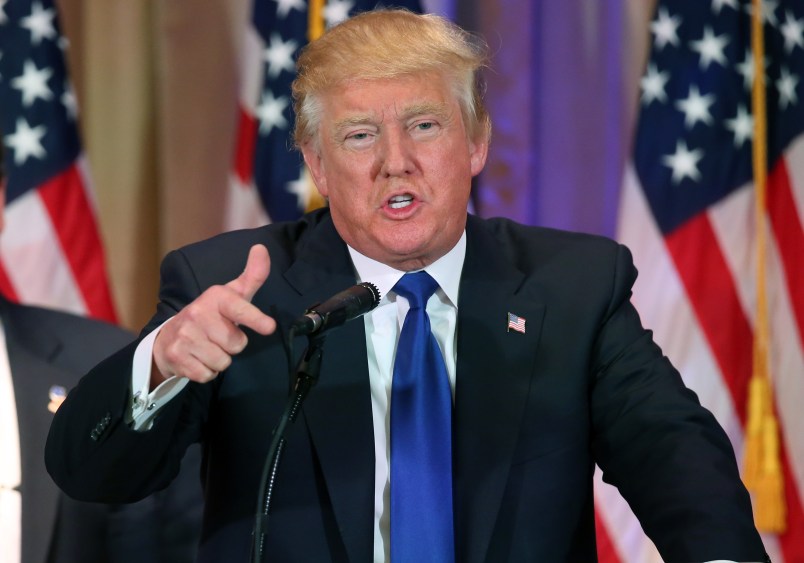Numerous Republicans and pundits are now predicting a contested GOP convention. Everybody was noting last night that … well, sure Trump is winning most of the primaries but delegates are distributed on a proportional basis so “not Trump” has more delegates than “Trump.” So open convention, baby!
No. In this election, certainly anything – truly anything – is possible. Despite my headline, I would not even say that a contested convention is impossible. But this ‘contested convention’ talk is just a compressed phase of denial, bargaining and anger as GOP stakeholders rush to make sense of what’s happening to them.
There were a number of reasons why Democrats invented “superdelegates” in the early 80s. A big one was a desire among officeholders and especially the (largely Southern) New Democrats to avoid getting saddled with an unelectable, too liberal candidate and relatedly losing their power as party stakeholders. McGovern was the big example in their minds. It was his commission which rewrote the party’s primary rules after the tumultuous, cataclysmic and self-immolating 1968 convention in a way that greatly advantaged his subsequent campaign in 1972. After 1980, they saw Carter in similar terms.
But there was another (deeply related but genuinely distinct) reason: to prevent a factional candidate who had a bare plurality of delegates and maybe not even a majority of the primary popular vote from taking the nomination. At a minimum, they wanted to create some separate force which could intervene and prevent an outcome that was politically and perhaps even small-d democratically untenable. What a lot of people don’t remember was that George McGovern came to the Miami convention with the vast majority of the delegates. But he’d only drawn 25% of the vote. And Hubert Humphrey actually had slightly more of the popular vote.
This was all a couple generations ago. Now Democrats are saddled with this ‘superdelegate’ system which I think pretty much everyone recognizes could never actually be used to decide the nomination outcome with blowing up the party itself.
And that brings us back to the GOP’s ‘contested convention’. This isn’t 1952 or even 1980. Today the primary/caucus system, while simply a creation of the parties themselves and without any actual constitutional or even electoral legal basis, is deeply imbued with democratic legitimacy. It is simply untenable in today’s presidential selection process for one candidate to come into the either party’s convention with a strong plurality of the delegates and popular vote and see someone who came in 2nd or 3rd (or just as likely didn’t even run in the primaries) emerge as the nominee. Not tenable. Not possible.
Obviously, if one candidate doesn’t win outright on the first ballot, all bets are off. The convention can literally nominate anyone. But if the clear plurality “winner” doesn’t get the nomination, the general election probably ends right there.
A spoiler third party candidacy would become extremely likely. Even if it didn’t, how many supporters of the candidate who would not unreasonably feel the nomination had been stolen from him would show up to vote for the nominee of the stealers? At the end of the day ideology and ingrained partisanship would likely bring most around. But we’re basically a 50%-50% political nation. Losing as few as 5% of them would probably doom the ‘unity’ nominee. Beyond that, a pall of illegitimacy, weirdness and untestedness would hang over the nominee for the rest of the election which would likely wrongfoot the entire party machinery for the remaining months of the election.
I assume it is needless to say that there probably is no candidate imaginable more guaranteed to remain unreconciled and unreconcilable than Donald Trump. He has no future prospects or senate seat or anything else to protect.
There are probably many Republicans who would say that both in principle and in the long term interests of the Republican party this would still be better a better outcome. That’s a strong argument. But that’s a separate point. A ‘stealing’ contested convention could happen. But it almost certainly cedes the election to the Democrats.






